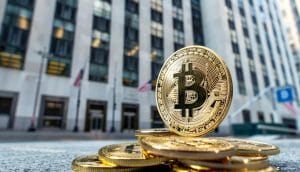US Court Rules Crypto Trades on Secondary Markets as Securities Transactions

In a landmark decision, a U.S. court has determined that the trading of certain cryptocurrency assets on secondary markets, including platforms such as Coinbase, are securities transactions.
The ruling, issued by the U.S. District Court for the Western District of Washington, pertained to an insider trading case involving former Coinbase product manager Ishan Wahi, his brother Nikhil Wahi, and their associate Sameer Ramani.
New ruling in SEC’s Coinbase insider trading lawsuit comes as a blow to the crypto industry as judge finds secondary token sales were securities. https://t.co/rmt7KSDdvk
— FORTUNE (@FortuneMagazine) March 3, 2024
Crypto Transactions as Securities on Coinbase
The defendants allegedly traded on advance knowledge of which crypto assets would be listed on the exchange. The case was brought to light by the Securities and Exchange Commission (SEC), marking the intersection of traditional securities law and the emerging digital asset space.
“According to the SEC, the tokens in which Ramani traded were investment contracts and, therefore, securities, because each involved the investment of money, in a common enterprise, with a reasonable expectation of profit derived from the efforts of others,” the ruling reads.
Ramani faced a default judgment for failing to respond to the court summons. “Ramani appears to have fled the country to avoid criminal prosecution for the actions alleged in this case,” said the ruling.
The Wahi brothers, on the other hand, reached a settlement with the SEC prior to this ruling on June 1, 2023.
“First Ever Cryptocurrency Insider Trading”
In July 2022, the U.S. Attorney’s Office for the Southern District of New York announced charges in this unprecedented case, dubbing it the “First Ever Cryptocurrency Insider Trading Tipping Scheme.”
“Today’s charges are a further reminder that Web3 is not a law-free zone. Just last month, I announced the first ever insider trading case involving NFTs, and today I announce the first ever insider trading case involving cryptocurrency markets,” said U.S. Attorney Damian Williams back then.
“Our message with these charges is clear: fraud is fraud is fraud, whether it occurs on the blockchain or on Wall Street,” sated Williams. “And the Southern District of New York will continue to be relentless in bringing fraudsters to justice, wherever we may find them.”
FBI Assistant Director Michael J. Driscoll also emphasized that despite the novel context of a cryptocurrency exchange, the case’s allegations firmly qualify as insider trading, whether “old or new.”




